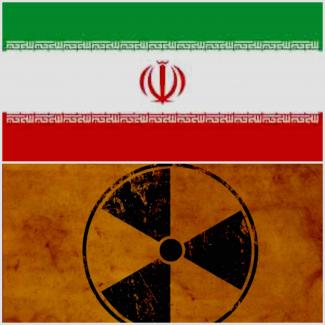Nuclear Ambition of Iran: The Stand-off Continues
Iran's chief nuclear negotiator, Ali Larijani, has warned that the country would resume enriching uranium and restrict United Nations inspectors from critical information if the United States and its allies used the "language of threat" by referring Iran to the Security Council. The negotiator's threat came as a confidential draft resolution circulated at the governing board of the global nuclear watchdog, the International Atomic Energy Agency.
Iran’s ‘contiversial’ nuclear programe goes back to 1960s when the framework of billeteral agreement with US was laid. At that time, the Washington administration supported the idea of the Shah of Iran, Mohammad Reza Pahlavi, who envisioned a time when the world's oil supply would run out and petroleum, a “noble material, is too valuable to burn." Instead, he wanted to use nuclear power to save his country’s oil resources, and the US extended support to fulfil Shah’s ambition. The honymoon between these two countries had continued untill Mohammad Reza Pahlavi was overthrown by the Revolution of 1979 quite to the utter dismay of the US.
Arguably, the revolution which brought Ayatollah Khomeini to the helm was the turning point of US-Iran relations. The two countries broke diplomatic ties soon after, which was followed by the infamous hostage crisis. Losing its interest in Iran, the USA started accusing Iran of exporting terrorism and developing nuclear, chemical, and biological weapons. On the ground, it tried to marginalize Iran by successive economic sanctions and barring foreign companies making substantial investments in Iran’s hydrocarbon sector. The already sour relation turned bitter when in 2002 US President George W. Bush called Iran part of the so called "axis of evil" with Iraq and North Korea and began questioning Iran's nuclear intentions.
Following the Uranium enrichment activities at Isfahan, the Bush administration has vociferously raised its objections, criticizing the Iranian decision. The threat of a preemptive military strike further charged the environment. According to Western media reports, Bush gave the Defense Department approval to develop scenarios for an attack on Iran. Even Israel, Washington’s closest ally in West Asia, is said to have drawn up a plan to attack on Iran if the diplomacy fails to dissuade Iran from its nuclear programs. High-ranking US officials have admitted that a military strike on Iranian nuclear facilities by Israeli or American forces had not been ruled out should the issue become deadlocked at the United Nations.
Amidst this standoff, the European Union proposed in July this year, hoping that Tehran would permanently give up nuclear enrichment and construction of a heavy-water reactor which could be used to make a bomb. The EU plan, which has not been made public, is said to offer “recognition of Iran's right to produce nuclear power for civilian purposes, as well improved trade relations with the EU and guarantees of alternative nuclear fuel sources from Europe and Russia.” EU’s support for Iran derives from the fact that Iran is a signatory to the Nuclear Non-Proliferation Treaty (NPT), which allows pursuing nuclear technology for peaceful purposes.
Ali Larijani’s latest comments were the first time that Iran had explicitly threatened to cut off inspections and resume enriching uranium “for civilian reactor fuel, not for nuclear weapons”. The U.S. and European governments have expressed dismay over these irresponsible statements, although it is unlikely that the EU will go with the Washington administration. The growing demands for hydrocarbons in Europe and Iran’s potential in oil and gas resources make the EU a ‘reluctant’ partner who will not like any US intervention in Iran. Even if Iran’s case is referred to the Security Council, China and Russia, having significant interests in Iran and, with their veto powers, will definitely object to any US tactics.
As the United States, Canada, Australia and Japan pushed vigorously the diplomatic campaign, Russia has overtly opposed any move against Iran. According to Sergei Lavrov, the Russian foreign minister, the move would be counter-productive. However, while the international community is now divided over Iran [the West v the Rest], the impasse over Iran’s quest for nuclear energy/ weapon continues.
